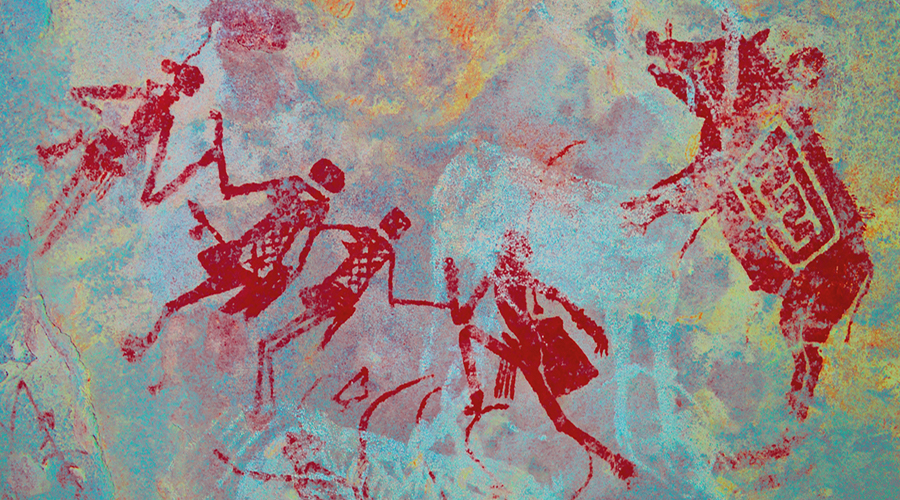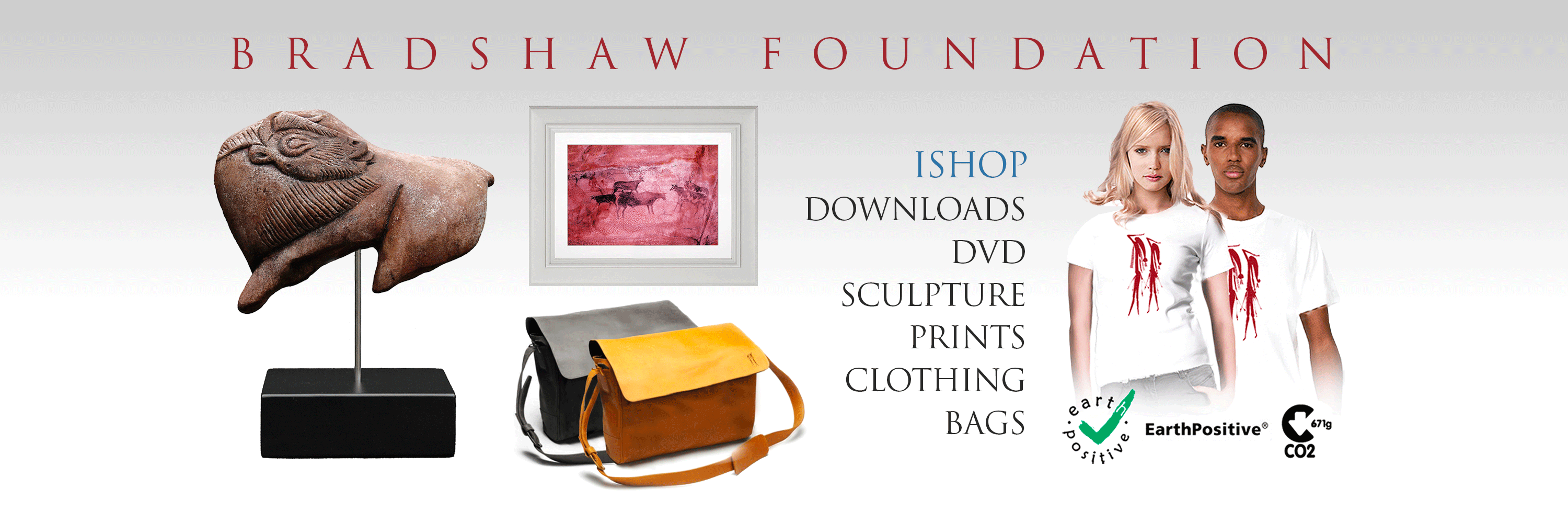


An article on the BBC from the University of York - Archaeologists find 10,000-year-old crayon in Scarborough - reports on an ochre crayon found by archaeologists thought to have been used to draw on animal skins 10,000 years ago.

The crayon (left) was discovered near the site of an ancient lake. An ochre pebble (right) was found near the crayon. Image: University of York.
The crayon, which is just 22mm long, was discovered near the site of an ancient lake which is now covered in peat near Scarborough, North Yorkshire.
An ochre pebble was found at another site on what would have been the opposite side of the lake.
The area is near one of the most famous Mesolithic sites in Europe, Star Carr.
Archaeologists from the University of York found the items at Seamer Carr and Flixton School House.
Ochre crayon discovered near #Mesolithic site of #StarCarr in England https://t.co/PXEY1X0lEe #archaeology pic.twitter.com/wQ9TW9rxZv
— Bradshaw Foundation (@BradshawFND) January 29, 2018
They were studied as part of a collaboration between the departments of Archaeology and Physics, using state-of-the-art techniques to establish their composition.
The ochre - a pigment made from clay and sand - pebble has a heavily striated surface that is likely to have been scraped to produce a red pigment powder.
The research team said nearby Flixton was a key location in the Mesolithic period and the pebble and crayon help show how people interacted with the local environment.
Lead author of the study Dr Andy Needham said the latest discoveries help further our understanding of Mesolithic life.
"It is possible there could have been an artistic use for these objects, perhaps for colouring animal skins or for use in decorative artwork," he said.
"Colour was a very significant part of hunter-gatherer life and ochre gives you a very vibrant red colour."
He added: "One of the latest objects we have found looks exactly like a crayon, the tip is faceted and has gone from a rounded end to a really sharpened end, suggesting it has been used."
The research team said previous finds at Flixton include a Mesolithic pendant and more than 30 red deer antler headdresses.
by Bradshaw Foundation
Monday 04 December 2023
by Bradshaw Foundation
Friday 30 June 2023
by Bradshaw Foundation
Thursday 06 April 2023
by Bradshaw Foundation
Thursday 24 November 2022
by Bradshaw Foundation
Tuesday 27 September 2022
by Bradshaw Foundation
Thursday 08 September 2022
by Bradshaw Foundation
Tuesday 19 July 2022
by Bradshaw Foundation
Monday 06 June 2022
by Bradshaw Foundation
Friday 11 March 2022
by Bradshaw Foundation
Wednesday 02 March 2022
by Bradshaw Foundation
Thursday 26 August 2021
by Bradshaw Foundation
Monday 16 August 2021
by Bradshaw Foundation
Tuesday 06 July 2021
by Bradshaw Foundation
Thursday 06 May 2021
by Bradshaw Foundation
Thursday 06 May 2021
by Bradshaw Foundation
Tuesday 16 March 2021
by Bradshaw Foundation
Monday 04 December 2023
by Bradshaw Foundation
Friday 30 June 2023
by Bradshaw Foundation
Thursday 06 April 2023
by Bradshaw Foundation
Thursday 24 November 2022
by Bradshaw Foundation
Tuesday 27 September 2022
by Bradshaw Foundation
Thursday 08 September 2022
by Bradshaw Foundation
Tuesday 19 July 2022
by Bradshaw Foundation
Monday 06 June 2022
by Bradshaw Foundation
Friday 11 March 2022
by Bradshaw Foundation
Wednesday 02 March 2022
by Bradshaw Foundation
Thursday 26 August 2021
by Bradshaw Foundation
Monday 16 August 2021
by Bradshaw Foundation
Tuesday 06 July 2021
by Bradshaw Foundation
Thursday 06 May 2021
by Bradshaw Foundation
Thursday 06 May 2021
by Bradshaw Foundation
Tuesday 16 March 2021
Friend of the Foundation











